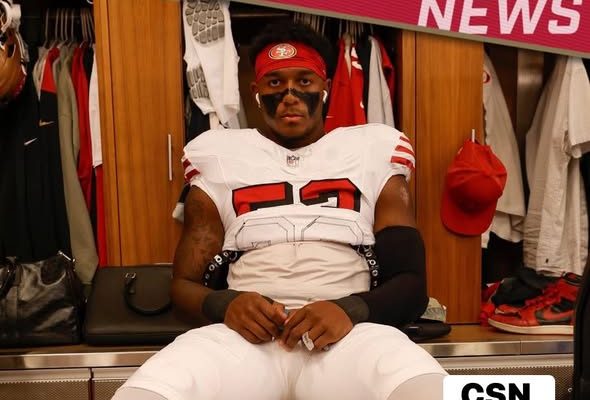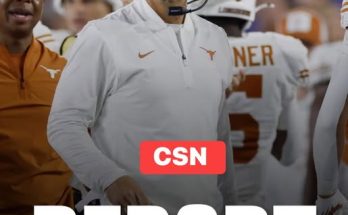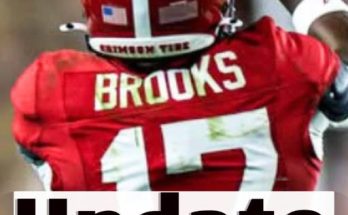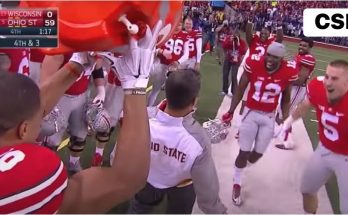The San Francisco 49ers were dealt a painful blow this week as reports confirmed that linebackers Dee Winters and Jordan Elliott have officially been ruled out, while defensive lineman Sam Okuayinonu was carted to the locker room earlier in what appeared to be a serious injury. It’s the kind of news no team wants to hear, especially as the season grinds toward its most crucial stretch — a point when depth, chemistry, and resilience define who survives and who falls behind.
For a 49ers team that has prided itself on physicality, discipline, and depth on both sides of the ball, losing key defensive contributors like Winters and Elliott is more than just a roster update — it’s a test of identity. Injuries have long been a part of football’s unforgiving reality, but when they strike a defense that thrives on aggression and communication, the ripple effect can be massive.
Dee Winters, the promising linebacker who has shown flashes of brilliance since being drafted out of TCU, was expected to play a significant role in the 49ers’ rotation this season. Known for his burst, tackling range, and football IQ, Winters had been developing into a versatile piece in defensive coordinator Nick Sorensen’s scheme. His speed and instinct in open space made him an asset on special teams and a rising contributor on defense, especially in sub-packages designed to counter modern pass-heavy offenses.
Unfortunately, his injury — sustained during practice earlier in the week — now halts that progress. Reports indicate that Winters suffered a lower-body injury that will sideline him indefinitely. The team has not given an exact timeline for his return, but insiders suggest it could be several weeks before he’s ready to resume football activity. That’s a tough setback for a player trying to establish himself and for a defensive unit already thin at linebacker.
Meanwhile, Jordan Elliott, one of the more underrated rotational defensive linemen, has also been ruled out. Elliott, who joined the 49ers after his stint with the Cleveland Browns, brought a strong interior presence that helped anchor the run defense and generate interior pressure. He wasn’t a headline-grabbing name, but his contributions were crucial — the kind of player whose value often becomes clear only when he’s not on the field. Elliott’s ability to take on double teams and free up edge rushers like Nick Bosa and Drake Jackson was quietly pivotal in maintaining the defense’s rhythm.
The 49ers’ front seven has long been the engine of their success, and losing both Winters and Elliott at once puts immediate strain on their rotation. It also forces the coaching staff to get creative with personnel adjustments, potentially elevating young and inexperienced players into critical roles. That’s a dangerous balancing act when facing physical offenses that love to test gaps and exploit communication breakdowns.
The situation worsened during the game when Sam Okuayinonu, the defensive lineman out of Maryland, was carted off the field early after sustaining what appeared to be a leg injury. The sight of him being helped onto the cart, visibly frustrated, was a gut punch for teammates and fans alike. Okuayinonu had been a steady presence — a high-motor player who earned respect for his effort and toughness. His ability to rotate inside and outside gave the defense flexibility, and his absence leaves another hole that the 49ers can ill afford.
What’s particularly troubling for the coaching staff is not just the loss of three players, but where those losses occur — all within the defensive front seven. The 49ers’ defensive identity has always been built on controlling the trenches, setting the tone physically, and letting their pass rush dictate the flow of the game. Losing bodies in that department affects everything, from run defense to pass coverage. Without a consistent interior push, quarterbacks have more time to throw, and linebackers are forced to take on more responsibility in run fits and blitzes.
Head coach Kyle Shanahan and defensive coordinator Sorensen will now have to rely more heavily on the team’s depth chart and practice squad. Expect to see more of Marcelino McCrary-Ball and Demetrius Flannigan-Fowles in rotational roles, along with a possible elevation from the practice squad. Rookie defenders may also find themselves thrust into larger responsibilities earlier than expected.
But beyond the Xs and Os, this moment is also about resilience — the 49ers’ ability to handle adversity, a trait that has often defined their greatest seasons. Injuries are inevitable, but how a team responds to them often determines its destiny. San Francisco has weathered similar storms in the past, from Nick Bosa’s ACL tear in 2020 to injuries that decimated their quarterback room last season. Each time, they’ve managed to regroup and compete.
This latest setback, however, comes at a particularly delicate point in the schedule. With upcoming games against physical opponents, the margin for error narrows considerably. Every missed tackle, every miscommunication, every fatigue-driven mistake becomes amplified when key defensive players are missing. The 49ers’ secondary, already stretched thin, will now need to trust that the next men up can keep the pressure steady.
The human element of these injuries can’t be overlooked either. For players like Okuayinonu, Winters, and Elliott — each at different stages of their careers — these moments are emotionally taxing. The endless rehab sessions, the uncertainty about recovery timelines, the frustration of watching teammates compete without them — all of it weighs heavily. Yet, it’s also what often builds character and shapes the mental toughness that defines long-term success in the NFL.
Teammates have already shown support on social media, with several 49ers posting encouraging messages and rallying behind the injured players. Veteran leaders like Fred Warner and Arik Armstead have been vocal about keeping the locker room tight and focused. Warner, in particular, emphasized in his postgame interview that the defense must “stay locked in and keep the standard high,” no matter who’s on the field.
The front office may also explore short-term reinforcements. General manager John Lynch has never been shy about making midseason adjustments when depth becomes an issue. Potential signings or practice squad elevations could happen soon, especially with the team needing insurance at defensive tackle and linebacker. Lynch and Shanahan have built a culture of accountability and readiness — a “next man up” mentality that has carried them through previous adversity.
Still, there’s no denying that the loss of Winters, Elliott, and potentially Okuayinonu changes the dynamics. Each of these players represented a specific skill set: Winters brought youth and sideline-to-sideline range; Elliott brought strength and consistency; Okuayinonu brought effort and adaptability. Their combined absence removes layers of flexibility that the defense relied upon.



